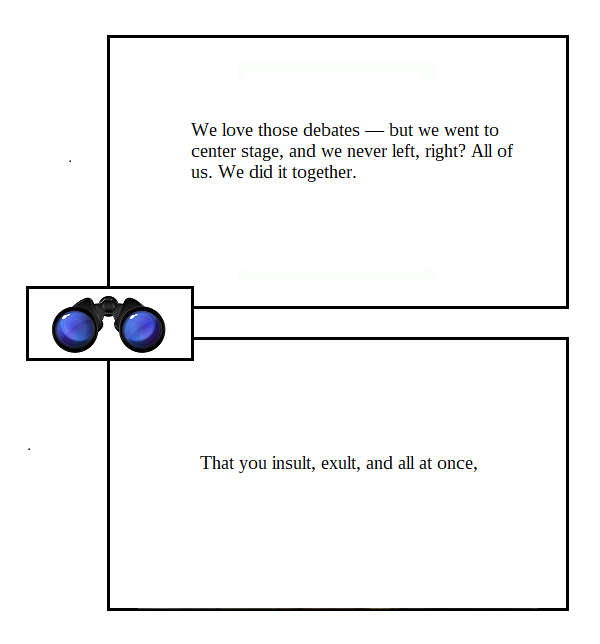I’m trying to figure it out
Saturday, August 26th, 2017[ by Charles Cameron — oh, i mean, the whole ball of wax, kit & kaboodle ]
.
I’m trying to figure it out by catching glimpses in other people’s work, finding somethat are part of their pretty obvious ideas that are assumptions for tuthem and indicative of the state of affairs for me. I suppose I’m always on the lookout for such things, but today I’m going to shoot for the big picture.
Item #1 comes from David Ronfeldt, friend of this blog, who posted at TIMN:
It is no longer possible to think of corruption as just the iniquitous doings of individuals, be they street-level bribe payers, government officials, or business executives. In the five dozen or so countries of which Honduras is emblematic, corruption is the operating system of sophisticated networks that link together public and private sectors and out-and-out criminals — including killers — and whose main objective is maximizing returns for network members.
Boom! The main objective is to maximize returns, returns. Nobody says what retiurns are, everybody knows: returns are cash, money, moolah is what everyone is after, “follow the money” is equalled in popularity only by “cherchez la femme” — although “follow the dead Russians” has a temporary place in the sun if you follow John Schindler. Money, sex, that’s about it.
Sex. I’ll need an item for sex, eh?
**
Item #2 is prestige. I ound it at Tom Whipple‘s post, Starman, whichb describes a Norwegian jazz player’s rooftop searches for items of stardust.
So began the journey that would end with an autodidact gypsy-jazz musician publishing a scientific paper in a prestigious American geology journal,
The item here is prestige, yes, in the words “prestigious journal” — and the thing here is that anm autodidact made it into some prestigious pages, a jazz musician, imagine that!
Oh, and BTW, we are stardust:
I suppose you could call Joni Mitchell a jazz musician too, but she’s not — as far as I know — Norwegian,
**
Money, prestige, stardust.
Those are my findings so far, that’s what it’s all about. And I’m guessing, sex too, once I find an appopriate reference — oh, totally inappropriate, I’m afraid, not suited to office viewing. .
Sorry about that, I should have used a title-srolling clip from Sex and the City. I mean, good-looking means do it, plain and simple. Those guys who make films know what they’re doing.
I know, I know, I wemt from fishing phrases out of articles into fishing songs out of YouTube — but I’m still after “it” — and now we have money, prestige, stardust, sex..
I am beginning to see a glimmer of the human condition, la condition humaine. I mean, wars — civil and uncivil, compromise, film makers knowing who to film in filmy nightgowns, tight short skirts, and so on, and frankly, Trump, who epitomizes Sex and the City, has moola and no tax returns, and is made of greater stardust than the rest of us, I mean, he Trumps!
**
What else? I ask you, what else are we?
Frankly, there’s transcendence. We are golden. We’ve got to get ourselves back to the garden. This one’s from my memory trove — it’s from Thomas Traherne‘s little book, Centuries of Meditations:
You never enjoy the world aright, till the Sea itself floweth in your veins, till you are clothed with the heavens, and crowned with the stars: and perceive yourself to be the sole heir of the whole world, and more than so, because men are in it who are every one sole heirs as well as you. Till you can sing and rejoice and delight in God, as misers do in gold, and Kings in sceptres, you never enjoy the world.





